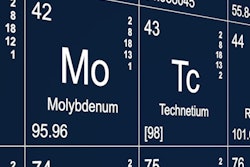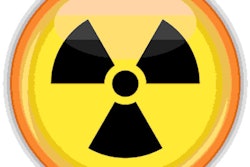Belgium plans to recycle highly radioactive residue from the production of medical radioisotopes, such as molybdenum-99 (Mo-99), according to a 3 January report in World Nuclear News.
The Nuclear Research Centre (SCK-CEN) and the Institut National des Radioéléments (IRE) will collaborate on the Recovery of Uranium from Mo-99 Production (RECUMO) project.
Belgium is one of the world's five major producers and distributors of Mo-99 and other medical radioisotopes. Through the country's BR2 research reactor and other sources, IRE contributes approximately 3,500 Ci per week of Mo-99 using a low-enriched uranium manufacturing process.
Leftover radioactive residues currently are stored in special containers at IRE's site in Fleurus, which will reach its limit by the end of this year if the containers are not removed from the site, according to the report.
SCK-CEN and IRE plan to dilute the residues with low-enriched uranium and then purify them to produce a low-enriched high-quality substance that can be reused, the report added. This process also would handle future radioactive residues from IRE.



















